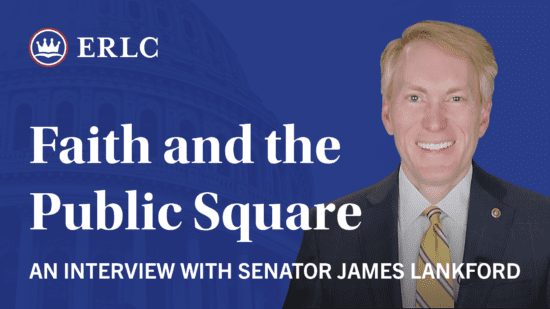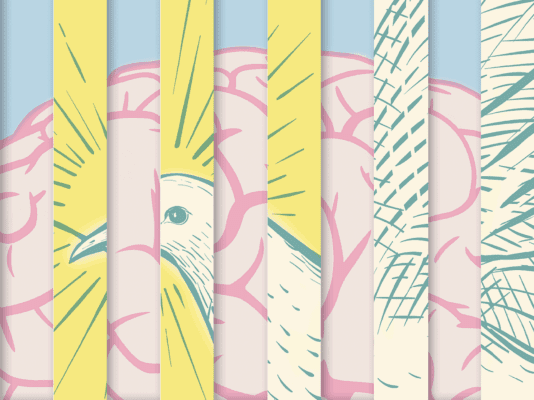The coronavirus pandemic has brought up many conversations in our home about suffering. The children are hearing about sick people, job loss, and isolation. They know the disruption and disappointment in their own lives. Try as we might, we can’t shelter the children from the reality of this present suffering. Nor should we want to.
Children ask questions about everything, turning to their parents as experts. If we are unwilling to answer their questions about the hard things in life, they’ll think we’re either unaware or unknowledgeable. They’ll still ask their questions, but they’ll turn to some other source for their answers. This is our chance to help them develop a theology of suffering.
We need to help children understand the problem of suffering, God’s provision for suffering, and his purpose in our suffering. When talking about suffering, we can always start at the Garden of Eden. When sin entered the world, so did suffering. We can trace back every heartache and hardship to sin. Even the happiest and most comfortable of lives will end in death.
The problem of suffering is because of the problem of sin. But the Father gave us a provision for that problem in the death, burial, and resurrection of his Son. Jesus conquered sin and death once and for all. Right now, we live knowing that his is the victory, but without seeing the full effects of it. But the provision of Jesus’ life is the cure for our sin and suffering problem. As we wait for the cure to be complete, we can also find comfort in God’s purpose for our suffering. Our suffering is the tool he uses to reveal our need for him, help us rest in his strength, and glorify him.
As parents, the task of communicating this to children can be difficult. Here are some of the ways my husband and I are trying to help our children understand suffering.
1. Give them the whole breadth of the Bible
Scripture is the most important thing we can give to our children to understand suffering. If we want our children to process the reality of this broken world, we have to give them the whole Bible, not just selected chapters or children’s versions. When we read to them from Genesis to Revelation, so many of the hard conversations we need to have with our children are started for us. God’s Word shows not only suffering but also God’s faithfulness and steadfastness. The Bible will help them understand the root of all pain, suffering, and evil in the world and show them the solution.
Give them the whole breadth of the Bible that they may see God’s purposes have always existed. Let them know that we have a sovereign God who is all-knowing, all-present, and all-powerful. Show them a God who is not surprised nor defeated by our brokenness. God’s Word shows not only suffering but also God’s faithfulness and steadfastness.
2. Pray through suffering
Our children need to learn to pray through suffering. God hears our prayers and is glorified in them. Our faith is grown through prayer as we trust in the Lord to keep his promises. The psalms are a great place to turn because of the many examples of lament, showing how to pray during the pain of suffering while trusting in God.
As we teach them to pray for ourselves and others, children’s hearts will orient towards others’ pain. They’ll grow in compassion as they learn to trust God in the midst of hardships.
3. Read good books
For the past year, my children and I have been reading through Ralph Moody’s autobiographical series Little Britches. When Moody was a young boy, his family moved from Massachusetts to Colorado in the early 20th century because of his father’s failing health. The family had to learn how to ranch to survive. Life was a struggle. Moody saw great loss throughout his life, but his tales of growing up are not marked by complaining nor quitting. Instead, Moody recounts a family that worked hard and loved deeply. They recognized challenges and suffering when they faced them but were never broken.
Scripture is the most important thing we can give to our children to understand suffering.
Good books that point us to the true, the good, and the beautiful will help our children develop perseverance and resilience as they grow in understanding what it means to be human. They are able to walk through painful times without having to actually bear the full weight of the suffering. Little Women, The Secret Garden, The Watson Go To Birmingham-1963, and Bridge to Terebithia are full of characters we can suffer alongside. As they become friends with characters who walk sad roads, children are also reminded of new mercies that come in the morning.
4. Make new friends
A few years ago, a friend of ours lived with us for a month while we were trying to help him get back on his feet. His story of suffering was long and complicated. At almost 80 years old, life had brought him to a point where the best place for him to live was in our son’s bedroom.
It wasn’t easy to host him—my son had to sleep on the floor of his sisters’ room while our friend stayed with us. We had another person to clean up after. I had to learn how to manage his medication. And we had to help him stay busy during the day. But hard doesn’t mean bad, and in this case, hosting him was good. Our whole family was aware of his suffering and was changed by his presence in our home. We grew in compassion and care for others. We recognized the effects of sin and injustice. And our faith grew as we learned to depend on God to care for us all.
Because many of our children spend most of their days in homogenous peer groups, parents may need to be intentional about finding friends whose lives don’t look the same as ours. Maybe there’s a refugee family down the road you can get to know, or an elderly couple in your neighborhood who would like to tell your family their stories. There are opportunities to volunteer at homeless shelters and food pantries.
Having friends from different backgrounds teaches us that suffering is varied. But in that variety, we also see the humanity in sufferers. In our humanity, we have shared needs for shelter, food, and love. And more than anything else, our humanity means that we are all sinners in need of a Savior.
Suffering has an end. Someday, he will make all things new. “He will wipe away every fear from their eyes, and death shall be no more, neither shall there be mourning, nor crying, not pain anymore, for the former things have passed away” (Rev. 21:4). Until then, we need to remember the promises of God to never leave us nor abandon us. Our children need to know where to place their hope as they live in a world rife with troubles.










